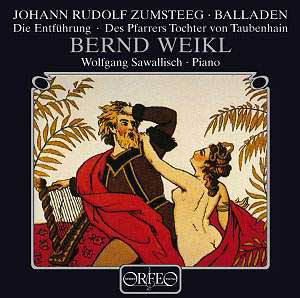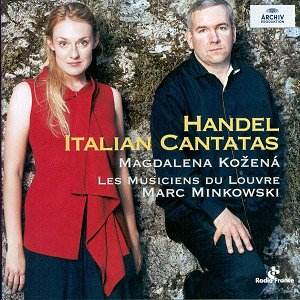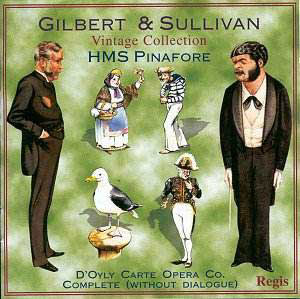 Composer: Johann Rudolf Zumsteeg
Composer: Johann Rudolf Zumsteeg
Works: Ballads with piano “Die Entführung,” “Des Pfarrers Tochter von Taubertheim”
Performers: Bernd Weikl (baritone), Wolfgang Sawallisch (piano)
Recording: Recorded Munich 1982 in association with Bavarian Radio
Label: ORFEO C074 02 1 A
Johann Rudolf Zumsteeg, a somewhat neglected figure of the late 18th century, emerges in this recording as a pivotal link between the classical and romantic traditions of German song. His works, steeped in the emotional intensity characteristic of the Sturm und Drang movement, encapsulate a rich tapestry of lyrical expression that anticipates later masters such as Schubert. The two ballads featured here, “Die Entführung” and “Des Pfarrers Tochter von Taubertheim,” reveal Zumsteeg’s deft craftsmanship, blending narrative poignancy with melodic charm.
Bernd Weikl’s interpretation is particularly noteworthy, showcasing a voice that balances power with nuanced expression. He navigates the emotional landscapes of Zumsteeg’s music with a full-bodied tone that remains clear and resonant throughout the range. Weikl’s ability to articulate the text is exemplary; his diction is immaculate, allowing the poetry to resonate without becoming overly mannered. For instance, in “Die Entführung,” his phrasing conveys both urgency and vulnerability, effectively drawing the listener into the narrative’s dramatic tension. Each word is imbued with meaning, and his dynamic choices are judiciously employed to enhance the emotional arcs of the pieces.
Wolfgang Sawallisch’s accompaniment deserves equal commendation. His pianism is characterized by a delicate touch and a keen sensitivity to the vocal line. The piano not only supports but also dialogues with the voice, creating an intricate interplay that is essential to the interpretation of these lieder. The recording quality is superb, with a forward placement that allows each nuance of both voice and piano to emerge distinctly. The clarity and balance of the sound enable the listener to appreciate the intricate textures woven throughout Zumsteeg’s writing, a hallmark of his compositional style.
This recording stands out not only for its artistic merits but also in the context of the evolution of the German lied. While Zumsteeg may not yet have received the recognition afforded to his contemporaries, his influence on the trajectory of song is palpable. Weikl and Sawallisch’s partnership is particularly effective, echoing the collaborative spirit of the late 18th century. The inclusion of translations in the booklet further enhances accessibility, inviting a broader audience to engage with the subtleties of the text.
The exploration of Zumsteeg’s music through this recording is not merely a historical curiosity; it is an invitation to experience the rich emotional depths that prefigure the romantic lieder tradition. Weikl’s interpretative choices, combined with Sawallisch’s sensitive accompaniment and the high-quality recording, create a compelling case for the significance of Zumsteeg’s work. This release will undoubtedly enrich the collections of those interested in the development of German song and offers a refreshing perspective on the repertoire that paved the way for the great lieder composers to follow.



